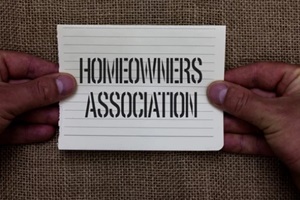 HOA special assessments are a right granted to homeowners associations and are in addition to the collection of regular dues on an as-needed basis. While homeowners are required to comply with the levying of special assessments, the utilization of this financial strategy may fall outside of the legal guidelines that govern HOAs.
HOA special assessments are a right granted to homeowners associations and are in addition to the collection of regular dues on an as-needed basis. While homeowners are required to comply with the levying of special assessments, the utilization of this financial strategy may fall outside of the legal guidelines that govern HOAs.
In such a case, homeowners have the right to dispute a special assessment and potentially take legal action to defend their rights. However, to succeed in a dispute, the homeowner will need to demonstrate clearly that the HOA violated its legal authority or otherwise failed to properly conduct the assessment.
This is achieved through evidence. Collecting and preserving evidence is necessary to support your legal challenge against an HOA special assessment.
Learn which assessments may be disputed and why the following three main pieces of evidence should be used for an HOA assessment dispute.
When HOA Special Assessments May Be Disputed
A special assessment is used when an HOA’s budgetary needs exceed its budget. Most commonly, this occurs when an emergency forces an unexpected repair, such as following a tornado that destroys a large swath of community property.
The funds to pay for this damage may exceed the limits of the standard annual budget and therefore, the HOA may levy a special assessment to collect additional funds from all households to cover the cost.
Another possibility is that the HOA is electing to substantially improve or build a community asset, such as a swimming pool, that can be used by all members.
A special assessment may be disputed if the conditions for its use have not been met. HOAs may not impose special assessments to cover routine maintenance, nor may a special assessment go toward repairing a single property that does not impact the community at large.
Special assessments are also carefully governed regarding notice requirements, the ability of the community to vote on amounts in excess of 5% of the annual budget, and the maximum value that a special assessment may be. Failure to properly abide by these rules leaves the HOA governing body open to viable disputes.
Evidence During a Dispute
 If you believe your homeowners association has not properly levied a special assessment, you may dispute the assessment. However, the viability of this dispute will depend on the evidence that the homeowner is able to provide.
If you believe your homeowners association has not properly levied a special assessment, you may dispute the assessment. However, the viability of this dispute will depend on the evidence that the homeowner is able to provide.
Some of the most important elements that should factor into most disputes include:
CC&Rs
The Covenants, Conditions and Restrictions are a set of documents that homeowners must sign when they join an HOA community. Within these documents are rules governing the use of special assessments.
If the HOA violated its contractual obligations as stipulated within the CC&Rs, the homeowner has the right to dispute the assessment. However, be aware that not all items included in the CC&Rs may be legally enforceable.
For instance, if the HOA attempts to include a provision bypassing the majority of a quorum vote on special assessments, this element is not enforceable because the HOA must still abide by state and federal law first and foremost.
If you are bringing a dispute against the HOA, make sure you have a copy of the CC&Rs that you signed when you joined.
Budget or Estimate
If the element being disputed in a special assessment is its value, homeowners should have access to the HOA’s budget or the estimate that was provided to the governing body for the work to be done. Homeowners may dispute these elements, such as if a repair costs more than the industry standard and thus places an undue financial burden on residents.
Similarly, if the homeowner wants to demonstrate that the HOA should be funding the repairs or construction with the funds it has saved from regular dues, they will need to provide evidence of the HOA’s annual budget.
Proof of Notice
 An HOA is required to provide notice to residents of an upcoming special assessment between 30 and 60 days prior to the due date of the assessment. This notice must be given in a traceable manner—certified mail, notice tendered in person, and so on.
An HOA is required to provide notice to residents of an upcoming special assessment between 30 and 60 days prior to the due date of the assessment. This notice must be given in a traceable manner—certified mail, notice tendered in person, and so on.
If a homeowner is considering filing a dispute against an HOA on the basis of failure to notify according to the legal requirements, they should request evidence that the HOA did notify them.
Failure to receive this evidence works in the homeowner’s favor. If the homeowner did receive notice but it did not comply with regulations, it should be kept as evidence as well.
Get Legal Help from a California HOA Dispute Attorneys
Special assessments can play an essential role in keeping HOA communities in good condition. However, if an HOA improperly utilizes special assessments, homeowners have the right to dispute.
The attorneys at Lehr Law have helped homeowners navigate disputes against their homeowners associations. Contact Lehr Law to schedule a consultation to get started.
